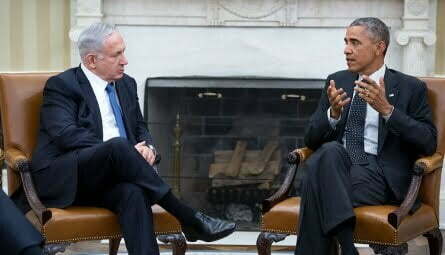While pundits traditionally focus on the increasing dominance of settlers in the armed forces officer corps and the tight phalanx between the Israeli elected officials and the ultra-nationalist camp, the notion of the cozy relationship between the IDF and the settlers is historically inaccurate. In fact, the two parties have been engaged in a four-decade-long game of hide and seek. Beginning with the establishment of Jewish settlement at Hebron in the spring of 1968, which was the result of a colossal dupe on the part of Rabbi Moshe Levinger and his Passover Seder participants, the IDF has alternately clashed and arbitrated with settlers. The attempted settlement at Sebastia in 1974-1975, which dragged on for months, was a cat and mouse affair where settlers encamped at the sight each evening, only to be dragged off the hill by force every morning by the IDF. Ofra (1975) too followed similar patterns for a time, until the Defense Minister Shimon Peres agreed to turn a blind eye to a supposed ‘work camp’ established on site by a bunch of lily-handed yeshiva students from Mercaz Ha-Rav.
These patterns continued throughout 1970s and 1980s. While the attack on an operating military installation may be new, settlements like Tekoa were founded on the grounds of abandoned IDF bases which settlers occupied by force. Truly, the concept of contemporary hilltop youth as a new phenomenon is unfounded – the residents of almost every established settlement in the West Bank today were the hilltop youth of yesteryear.
Contemporary rhetoric is also reminiscent of the past. When Foreign Minister and Nokdim settler Avigidor Liberman condemned recent events by characterizing radical settler activists as “weeds that must be uprooted,” he seemingly borrowed a line from Prime Minister Yitzhak Rabin’s statement to the Knesset in the aftermath of the Baruch Goldstein massacre in 1994, who dubbed Goldstein and his supporters “an errant weed”. The YESHA Council, too, has loudly joined the chorus, perhaps in fear of being accused of the too little too late response in the wake of the Rabin assassination.
As outrageous as this recent attack may be, it is not a historical anomaly — rather the product of a history between the settler and the IDF from the origins of the settlement enterprise. If the rules of the game are not changed — especially when the Netanyahu administration refuses to brand Jewish settler extremists as terrorists and failed to arrest most of the perpetrators or hold them accountable to the law — the cat and mouse charade will continue. Rather than decrying recent events as a departure from the past, we are all reminded that those who do not learn from history are doomed to repeat it.















